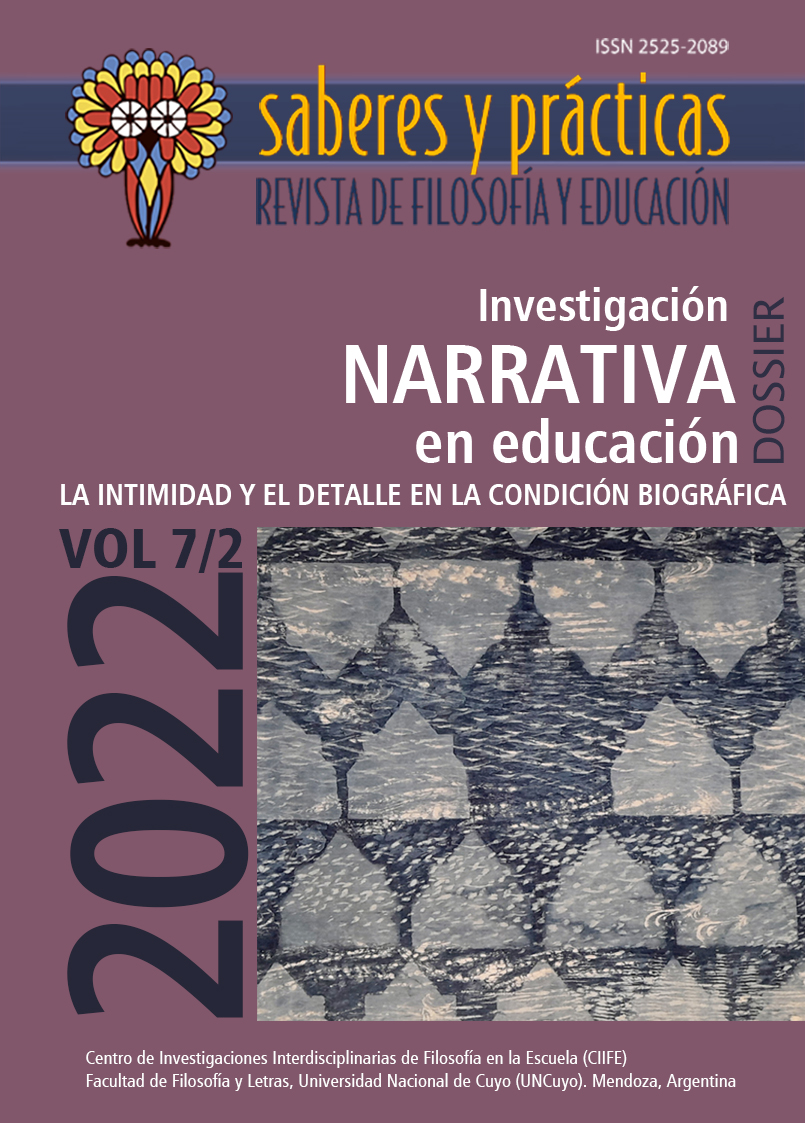Discomfort in Academic Writing
Notes about the Uncomfortable Tension between Mother Tongues, Disciplinary and Academic Languages at FCE-UNCUYO
DOI:
https://doi.org/10.48162/rev.36.062Keywords:
experience, wisdom, scientific knowledge, mother tongue, foreign languageAbstract
The initial concerns of this research arose from our own experiences in the teaching-learning practices at the university chair of Research Methodology: we wondered how knowledge is produced in the Facultad de Ciencias Económicas, Universidad Nacional de Cuyo (FCE-UNCUYO), what type of wisdom come out in those investigations, what epistemological assumptions are the ones that support the type of knowledge produced, and which ones are responsible for silencing the experience that seep in the texts. We start from a suspicion: behind an apparent confusion between the production of knowledge and the research for intervention, there is the production of specific wisdom in the field of Economic Sciences, often unrecognized in some academic instances due to its scarce systematization. Our research attempts to elucidate, from a critical epistemology, the epistemological assumptions of undergraduate research conducted at the FCE-UNCUYO to account for the experiences that underlie the wisdom produced. The methodological procedure sought to look in between, without isolating our object from its context of production, rehearsing a haptic look to read wisdom in texts. In this journey, we identified three types of languages that allow us to access different experiences in the production of knowledge: the mother tongue, the disciplinary language and the foreign language.
Downloads
References
Agamben, G. (2004). Infancia e historia. Ensayo sobre la destrucción de la experiencia. Trad. Silvio Mattoni. Adriana Hidalgo.
Bachelard, G. (1999). La intuición del instante. Trad. Jorge Ferreiro. Fondo de Cultura Económica.
Bereiter, C. y Scardamalia, M. (1987). The Psychology of Written Composition. Hillsdale, N.J.: Lawrence Erlbaum Associates.
Canguilhem, G. (1976). El conocimiento de la vida. Trad. Felipe Cid. Anagrama.
Del Vecchio, S (2016)- “La evaluación en la universidad: una encrucijada entre lo instituyente y lo instituido”. Revista Iberoamericana de Educación /Revista Iberoamericana de Educação. Vol.71, núm.2, pp. 69-90.
Del Vecchio, S. (2016). El cambio y la resistencia al cambio en la educación superior. Un diálogo entre la pedagogía y la política a propósito del currículum. En F. Machin, & L. Velasco Cicchitti (Ed.), Jornadas de Economía y Educación. Mendoza: FCE-UNCUYO.
Díaz, E. (2012). “Modulaciones metodológicas: el poder y la vida”. En: El poder y la vida. Modulaciones epistemológicas. Buenos Aires, Editorial Biblos – Ediciones UNLa, pp. 311-318.
Foucault, M. (2009). El gobierno de sí y de los otros: curso en el Collége de France: 1982-1983. FCE.
Foucault, M. (2011). Historia de la sexualidad 2: El uso de los placeres. Siglo XXI.
Gabriele, Alejandra. (2021) “Entre conocimiento y experiencia: la visión epistemológica como propuesta metodológica para una historia de las ciencias sociales en Argentina.”, En: Ambrosini, C y Mombrú, A. Emancipación y hegemonía.
Han, B. (2019). Ausencia. Acerca de la cultura y la filosofía del Lejano Oriente. Caja Negra.
Laso, E. (1996). “Saber, conocimiento y ciencia”, en: Díaz, E. La ciencia y el imaginario social. Biblos, pp. 29-42.
Lizcano, E (2009). “Las cuentecitas de los pobres. Crítica del saber culto y matemática paradójica en el cante flamenco”. En: Metáforas que nos piensan. 1a ed. Biblos.
López, D. (2012). “La prueba de la experiencia. Reflexiones en torno al uso del concepto de experiencia en la historiografía reciente”. Prismas - Revista de Historia Intelectual, 16(1), 33-52.
Machin, F. (2021) “El desarrollo económico y la planificación familiar: una teoría sobre la reproducción social para América Latina a mediados del siglo XX”. Ponencia presentada en las XXVII Jornadas de AAHE. Mendoza, UNCUYO, FCE.
Merleau-Ponty, M. (2010). Lo visible y lo invisible. Trad. Estela Consigli y Bernard Capdevielle. Nueva Visión.
Nancy, J-L. (2009). Le Plaisir au dessin. Galilée.
Pavlenko, A. (2016). Whorf’s Lost Argument: Multilingual Awareness. Language Learning 66:3. pp. 581–607 https://doi.org/10.1111/lang.12185
Preciado, P (2008) Testo yonqui. Espasa Calpe.
Velasco, L. (2016). Fundamentos epistemológicos de la economía. Análisis del plan de estudios vigente de la licenciatura en economía en la FCE UNCUYO. Trabajo Final de Grado. FCE-UNCUYO.
Whorf, B. (2012) Language, thought, and reality: Selected writings of Benjamin Lee Whorf. 2da ed. (Eds.) J. Carroll, S. Levinson, y P. Lee. Cambridge, MA: MIT Press, pp. 265-280.
Zabala, C. B. (2018). Sistema de incentivos en las empresas modernas. Caso de aplicación: Montemar compañía financiera [Tesis de grado no publicada]. Facultad de Ciencias Económicas, Universidad Nacional de Cuyo.






















